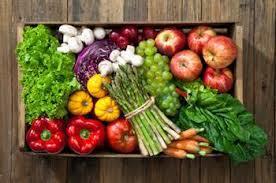
The Role of Diet in Colon Cancer Prevention
Nothing is more important to our overall health and well-being than getting regular exercise. It not only helps to keep us physically fit but also offers many mental benefits, including improved mood, increased energy levels, and improved concentration - all of which can lead to a happier and more productive life. But what if you're struggling with a medical condition or injury that makes it difficult to remain active? A physician-supervised exercise program can be a great solution for those looking to make the most of their time in the gym while managing their health conditions correctly. In this blog post, we'll explore the various advantages of medically supervised exercises as well as how they might be something worth considering if your health concerns are keeping you from achieving your fitness goals.
Overview of Colon Cancer
Colon cancer is a serious illness that affects many individuals worldwide. It arises from the cells of the colon and rectum, commonly known as the large intestine, and usually starts with polyps that grow into cancerous tumors over time. While the exact cause of colon cancer is unknown, many studies suggest a link between the food we eat and the risk of developing the disease. A diet high in red and processed meat, saturated fats, and low in fiber may increase the likelihood of developing colon cancer. On the other hand, a healthy diet rich in fruits, vegetables, whole grains, and lean protein may lower the risk of developing the disease. It is essential to note that early detection of colon cancer can significantly improve the chances of successful treatment. Thus, it is crucial to follow a healthy diet and get regular screenings to protect your well-being and reduce the risk of colon cancer.
Benefits of Eating a Healthy Diet
Eating a healthy diet can have numerous benefits, and a big one is reducing the risk of colon cancer. Studies have shown that a diet rich in fruits, vegetables, fiber, and lean proteins can help lower the risk of developing this type of cancer. This is because consuming a variety of healthy foods helps to promote a healthy gut environment, which can reduce inflammation and potentially inhibit the growth of cancer cells. Additionally, a healthy diet can help with weight management, reduce the risk of heart disease and type 2 diabetes, and improve overall health and well-being. So, next time you reach for that unhealthy snack, think about the long-term benefits of nourishing your body with healthy, nutritious food.
Key Nutrients for Lowering Your Risk of Colon Cancer
Maintaining a healthy diet may lower your risk of colon cancer by replenishing key nutrients essential to preventing cancerous cells from forming. A diet rich in whole grains, fruits, and vegetables contains fiber, antioxidants, and other vital nutrients that promote bowel health. In contrast, a diet high in processed foods, red meat, and saturated fats have been linked to developing and advancing colon cancer. It's important to focus on the types of foods that you consume regularly and consider implementing changes that can benefit your health and reduce your risk of colon cancer. By making simple dietary adjustments, you may be able to improve your digestive health and potentially prevent colon cancer from forming.
Dietary Strategies to Help Reduce the Risk
When it comes to colon cancer, one of the best things you can do to reduce your risk is to pay closer attention to your diet. While there is no guaranteed way to completely prevent colon cancer, there are certain dietary strategies that can help reduce your risk. For instance, incorporating more fruits and vegetables into your daily meals can provide your body with important nutrients and antioxidants that work to fend off dangerous cancer cells. Additionally, cutting back on processed meats and saturated fats can help to minimize potential damage to your colon. By making these simple changes to your diet, you can take an important step towards a healthier future.
Foods to Avoid or Limit for Colon Cancer Prevention
Colon cancer is one of the most prevalent forms of cancer worldwide, and a lot of research has gone into identifying foods that can help prevent it. There are foods that you should avoid or limit if you're looking to protect yourself from colon cancer. One of these is red meat. Studies have shown that consuming too much of it can increase the risk of developing colon cancer. Another is processed meats. These have been linked to colon cancer due to the chemical processes used to preserve them. Other foods to be careful with are those high in sugar and unhealthy fats. Instead, aim to include plenty of fiber-rich fruits and vegetables, whole grains, and lean proteins in your diet. This, combined with a healthy lifestyle and regular screenings, can put you on the right track for preventing colon cancer.
Tips for Making Healthy Changes to Your Diet
Maintaining a healthy diet can play a crucial role in reducing the risk of developing colon cancer. Making small but significant changes to your eating habits can help you feel better both physically and mentally. We all know the benefits of a balanced diet, but it can be challenging to put it into practice. Include more fruits, vegetables, and whole grains in your meals while cutting down on processed and sugary foods. Swap your fast-food meals for home-cooked dishes and reduce your salt intake. Remember, a switch to a healthier diet is not about depriving yourself of delicious food but about finding nutritious foods that you love and making them a part of your daily routine. Start by making small changes today, and over time, you will be on your way to a healthier you.
